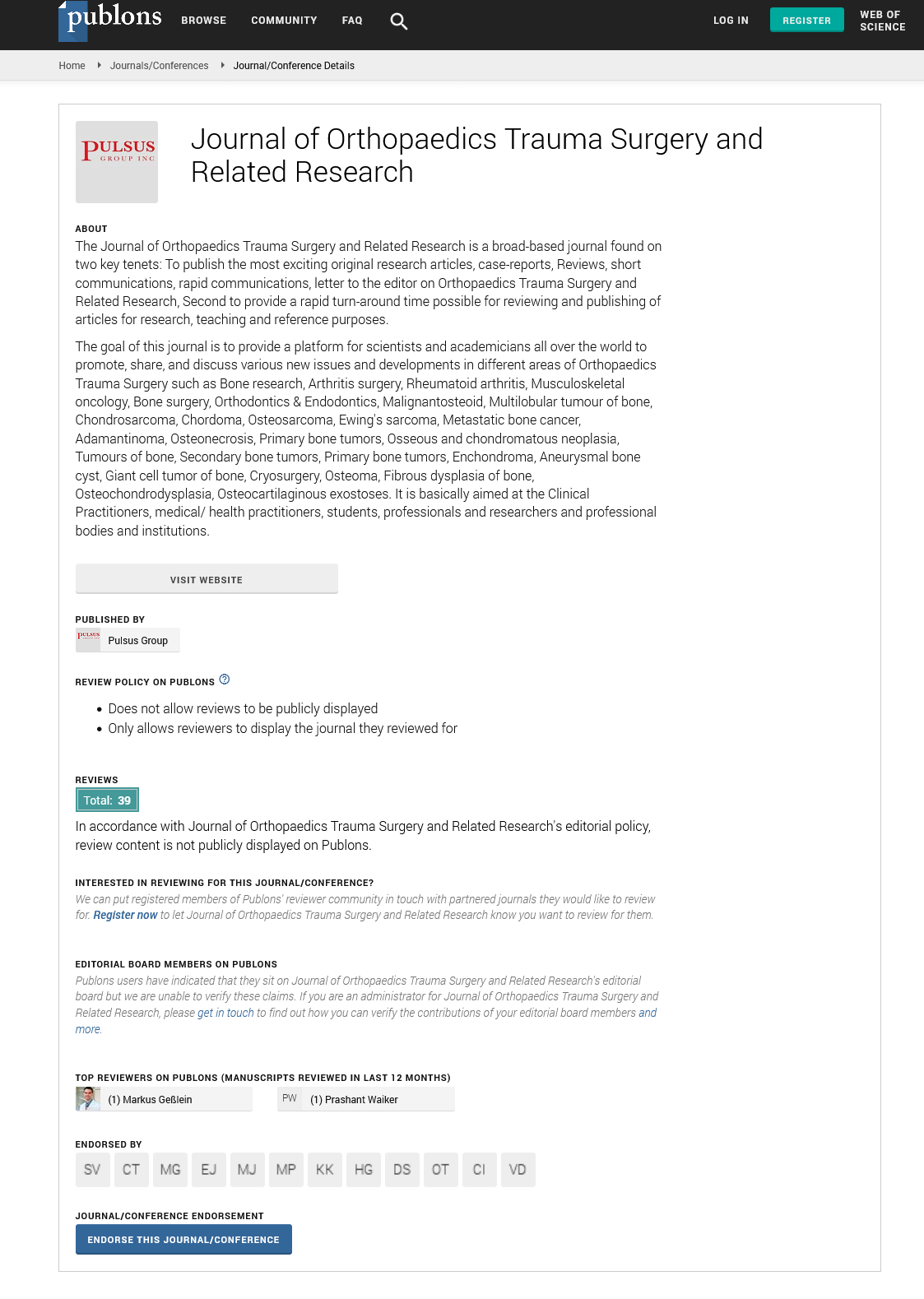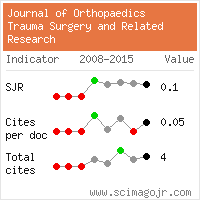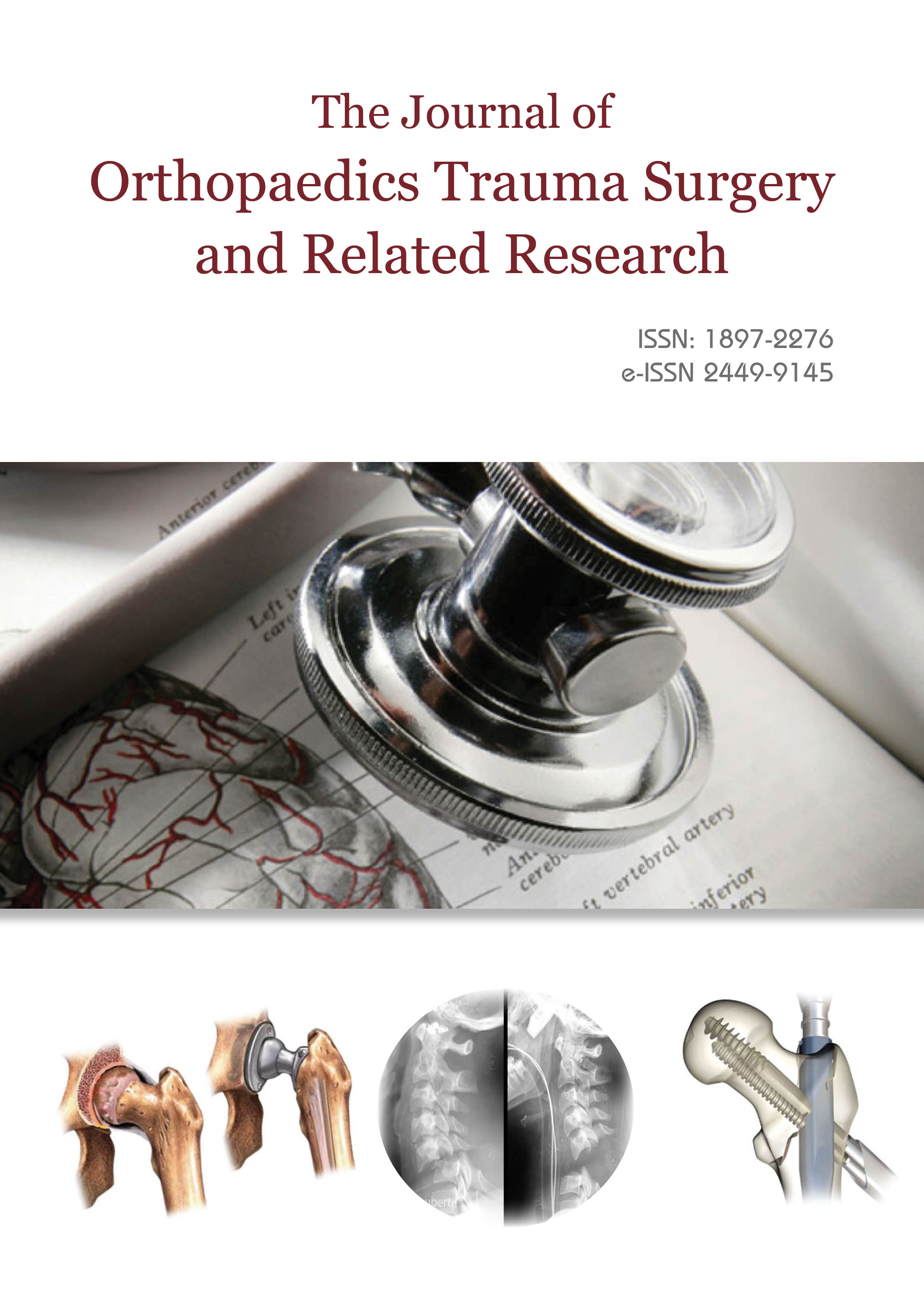After total knee arthroplasty, indicators and medical tests to determine the reasons of lower limb edema
Received: 08-Jul-2023, Manuscript No. jotsrr-23- 110038; Editor assigned: 10-Jul-2023, Pre QC No. jotsrr-23- 110038 (PQ); Reviewed: 15-Jul-2023 QC No. jotsrr-23- 110038 (Q); Revised: 18-Jul-2023, Manuscript No. jotsrr-23- 110038 (R); Published: 23-Jul-2023
This open-access article is distributed under the terms of the Creative Commons Attribution Non-Commercial License (CC BY-NC) (http://creativecommons.org/licenses/by-nc/4.0/), which permits reuse, distribution and reproduction of the article, provided that the original work is properly cited and the reuse is restricted to noncommercial purposes. For commercial reuse, contact reprints@pulsus.com
Abstract
Following Total Knee Replacement (TKA), lower limb edema reduces the efficacy of surgery. The lack of a categorization of swelling causes using adequate medical tests is the source of the dismal outcomes of trials on therapies for swelling. There’s no gold standard here. By interviewing a wide variety of specialists from other fields, this study attempted to clarify the reasons of TKA postoperative edema and how to identify them through signs and medical testing. The results of a thorough examination of the literature and diverse expert consultation are trustworthy and scientific. After TKA, there were several reasons of edema in the lower extremities. Blood test results might reveal an inflammatory reaction, inadequate venous return, muscle injury, and the status of recovery.
Keywords
Total knee replacement, postoperative swelling
Introduction
TKA is a successful therapeutic option for advanced knee osteoarthritis. Only in the United States, TKA is anticipated to reach 3.41 million interventions/year by 2040, since the number of operations is likely to continue to increase quickly globally. However, edema of the lower leg following TKA can occur in up to 90.7% of patients at 2 weeks-3 weeks after discharge and can remain for 90 days or more. The following issues might arise as a result of swelling and negatively impact the course and results of rehabilitation:
1. poor muscle activation and strength: Swelling brought on by jointderived muscle inhibition results in diminished extensor strength and poor quadriceps activation, delaying recovery.
2. Limited joint flexion and difficult rehabilitation activities: Swelling limits joint flexion, making it difficult to complete exercises and limiting early postoperative joint mobility. Additionally, it affects patients’ walking speed with time [1-3]. Swelling following TKA creates worries for patients, leading to a poor experience and low levels of satisfaction.
3. Skin-related complications: excessive swelling can result in blisters, skin breakdown, and increase the risk of joint infection. In order to enhance the postoperative prognosis, edema following TKA needs to be avoided with early management. Numerous causes of postoperative swelling, including inflammation, poor venous return, joint cavity hematoma, intracapsular synovial fluid, muscle injury and healing, ligament injury and healing, and comprehensive analysis of the anatomy of the knee, TKA procedure, and perioperative treatment, have been identified in the literature. It was not obvious, however, whatever tests may be used to differentiate between them. By interviewing a wide variety of specialists from other fields, this study attempted to clarify the reasons of TKA postoperative edema and how to identify them through signs and medical testing [4, 5].



 Journal of Orthopaedics Trauma Surgery and Related Research a publication of Polish Society, is a peer-reviewed online journal with quaterly print on demand compilation of issues published.
Journal of Orthopaedics Trauma Surgery and Related Research a publication of Polish Society, is a peer-reviewed online journal with quaterly print on demand compilation of issues published.